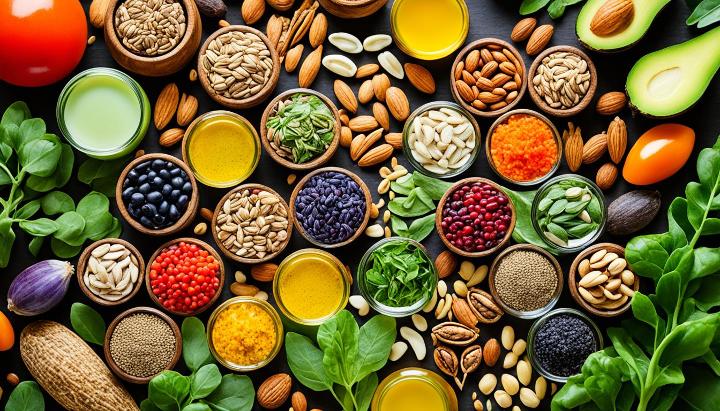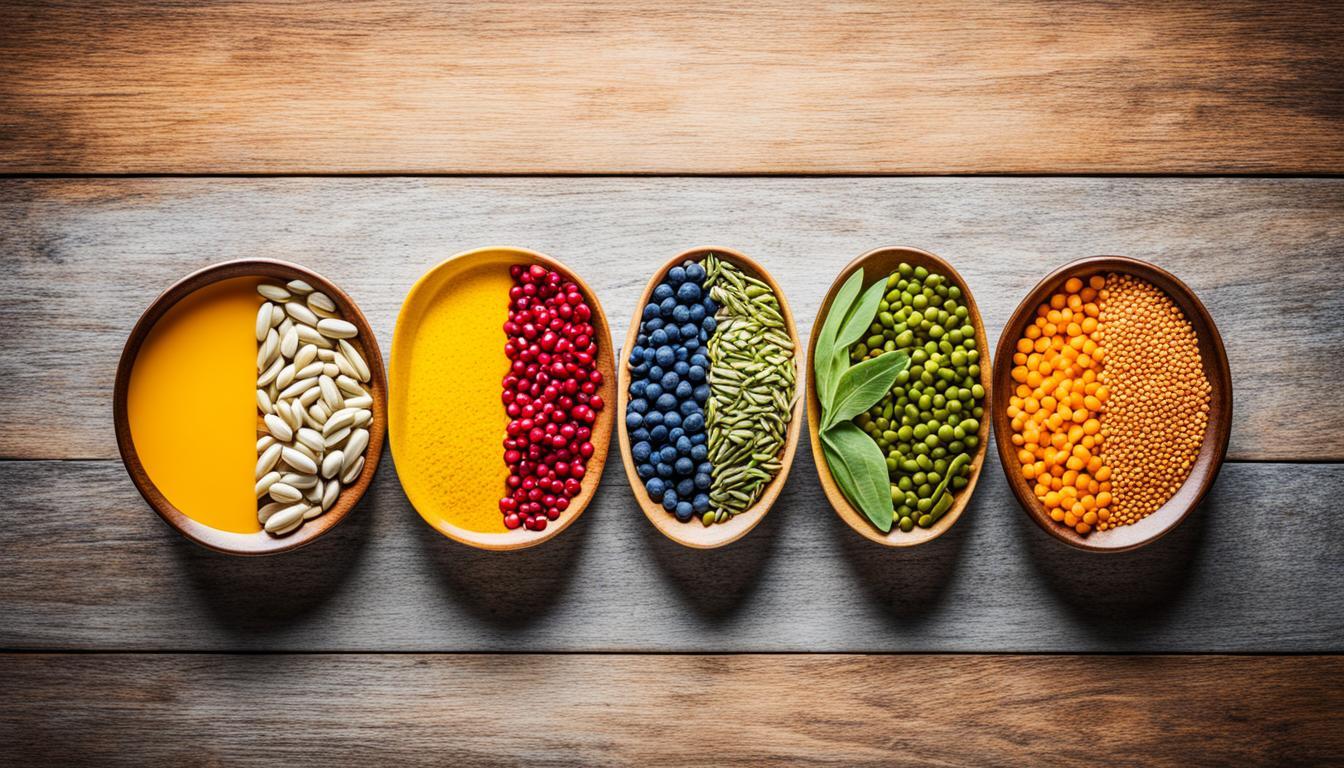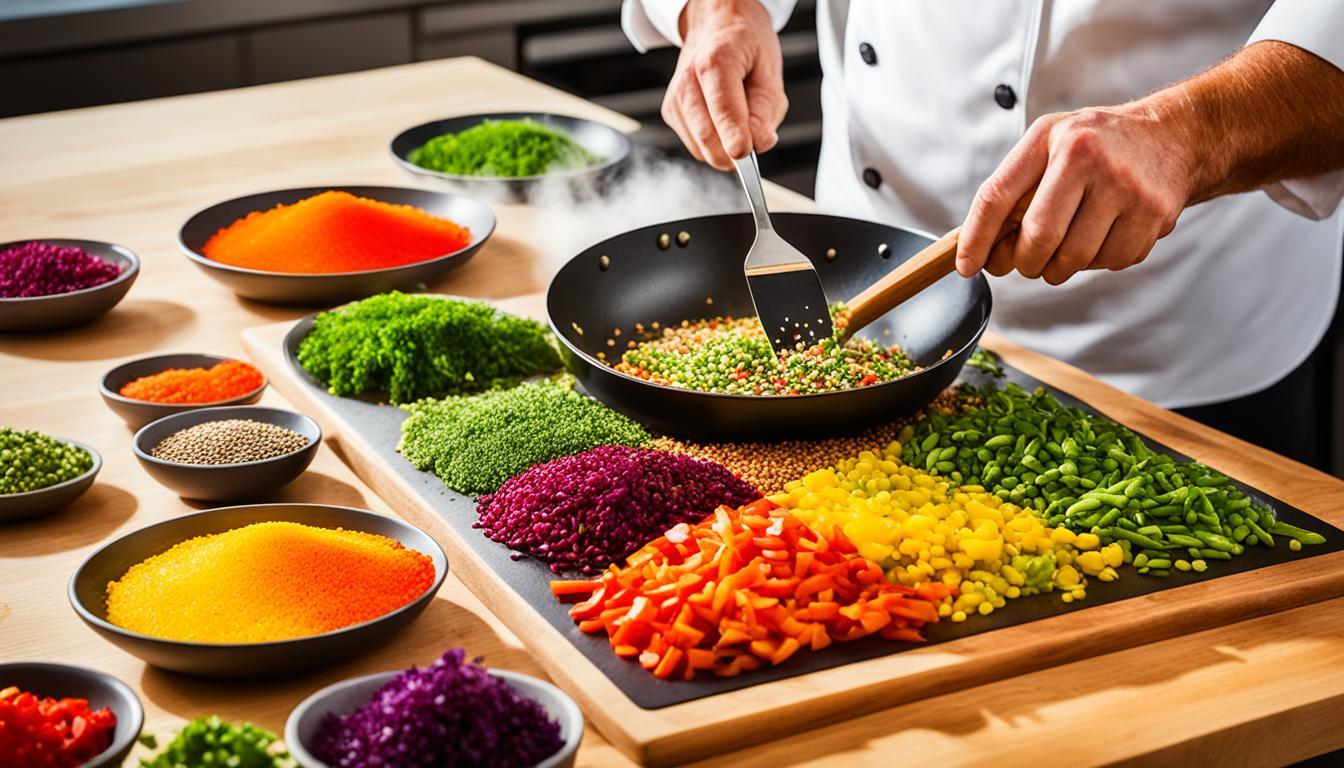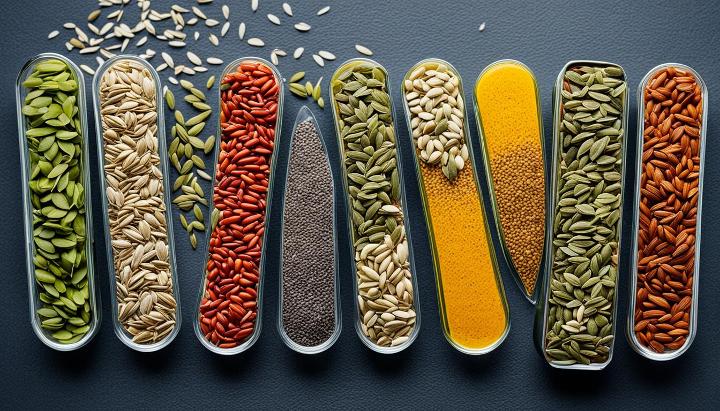Unveiling Seed Oils: Uses & Health Impacts

Seed oils are now common in our cooking, skincare, and health supplements. But do we really know their uses and health effects? Can we trust these oils, or are there unseen risks? This article investigates the world of seed oils. We explore how they help and hurt our health. Get ready to question what you know about these oils.
Key Takeaways:
- Seed oils are used in many ways, from cooking to skin care and health supplements.
- Learning about the nutrition of seed oils helps us make smarter diet choices.
- There are various extraction methods for seed oils. Cold-pressed oils are often seen as better.
- Seed oils' impact on heart health is not fully understood, with mixed research results.
- These oils are becoming more important in the food industry. They change what we eat and what's for sale.
Exploring the Basics: What Are Seed Oils?
Seed oils come from the seeds of many different plants. They are popular in cooking, skin care, and as health supplements. We'll talk about where these oils come from, the kinds we use, and how they differ from vegetable oils.
Defining Seed Oils and Their Origins
As the name suggests, seed oils are from plant seeds. To get the oil, the seeds are crushed. This separates the oil from the solids with a machine or chemicals. After that, the oil is refined and made ready to use.
Common Types of Seed Oils in Our Diet
One popular seed oil is canola oil, from canola seeds. It's often used in cooking. Canola oil has a light taste and can take the heat, so it's great for many recipes.
Soybean oil is from soybeans and also widely used. It's a favorite for many because it doesn't change the taste of food much. Plus, you can use it in different ways when cooking.
Sunflower oil, from sunflower seeds, is light and often used for frying. This oil has a high smoke point, which means it can get really hot before burning.
Distinguishing Between Seed Oils and Vegetable Oils
People often mix up "seed oil" with "vegetable oil." But there is a small difference. Seed oils only come from seeds, while vegetable oil can come from fruits, nuts, or seeds.
Seed oils and vegetable oils can have different fat types. Most seed oils have good fats. But, some vegetable oils might not be as good because they have more bad fats. Always check the labels to pick what's best for you.
The Nutritional Profile of Seed Oils
Seed oils have unique nutrition due to their fatty acid makeup. Knowing this helps us choose better diets.
Understanding Fatty Acid Composition
Each seed oil has various fats. Omega-6 is a key one, vital for our body.
Omega-6 fats help our brain, keep our bones strong, and help metabolism. They also grow our body's cells.
Seed oils are packed with omega-3 too. These fats fight inflammation and keep our heart and brain healthy.
Health Benefits Linked to Omega-6 and Omega-3 Ratios
Getting the right mix of omega-6 and omega-3 is crucial. A 4:1 to 1:1 ratio is best.
Our diets often have too much omega-6 and too little omega-3. This can cause inflammation and health problems.
By using various seed oils and watching our omega-6 to omega-3 balance, we can stay healthy.

Seed oils are a great nutritional source. Learning about their fats and balance helps us stay well.
Seed Oils in Cooking: Culinary Uses and Benefits
Seed oils are loved for their many uses in the kitchen and health perks. Adding various seed oils to your cooking can make your food taste better and be healthier. Knowing about the oil's flavor and smoke point is key for the best results in your dishes.
How to Cook with Different Seed Oils
Cooking with seed oils means knowing what each offers in terms of taste and use. Here's a quick guide to some popular ones:
- Canola oil: Its light flavor and ability to handle high heat make it great for sautéing, frying, and baking.
- Soybean oil: It's versatile and has a clean taste, perfect for stir-frying, grilling, and roasting.
- Sunflower oil: Offers a light, nutty taste and is good for pan-frying, salad dressings, and marinades.

Taste Profiles and Smoke Points
Every seed oil brings its unique flavor to your meals. Canola oil's neutral taste lets other flavors stand out. Meanwhile, sunflower oil adds a gentle nuttiness. Trying out different seed oils can open up a whole new world of tastes in your dishes.
Understanding the smoke point of an oil is important when cooking. Beyond this point, the oil can burn and release bad substances. Canola and soybean oils are best for high-heat cooking because they have high smoke points. However, flaxseed and walnut oils, with lower smoke points, are better as a finishing touch on dishes.
Knowing the flavor and smoke points of seed oils helps you cook smarter. It leads to tasty, well-prepared dishes every time.
Deconstructing Health Myths: Are Seed Oils Truly Toxic?
There's much talk about seed oils being harmful or toxic to our health. We'll look into what the science says about seed oils' effects. We aim to offer a fair view on whether seed oils can be part of a healthy diet.
Keep in mind, not all seed oils are the same. They vary in their nutrients and benefits. Being aware of these differences helps us choose wisely.
It's crucial to know the difference between natural and processed seed oils. Natural seed oils, like those cold-pressed, are less processed. They keep more of their good-for-you nutrients. But, highly processed seed oils might lose nutrients and add harmful ones.
Looking at seed oils' health effects should include your whole diet and lifestyle. A diet with lots of whole foods is better than honing in on single elements.
To truly understand seed oils, we need to look at what science and experts say. Some research says too much seed oil can lead to inflammation. It might upset the balance of certain fats. But, other studies talk about the benefits of using seed oils in moderation.
Seed oils do offer good fats, vitamins, and nutrients our bodies need. It's all about using them in the right amounts. Mixing them with whole foods is a smart move for your health.
So, are seed oils really toxic? Well, it's not a yes-or-no question. It's about what type of seed oil it is, how it's processed, and what you eat daily. Open-minded thinking, looking at facts, and smart choices are key.
Knowing more about seed oils helps us sort through the myths. This way, we can pick what's best for our health based on what we learn.
Cold-Pressed Versus Conventional: The Extraction Method Matters
The method used to get seed oils greatly affects their quality and nutrients. We will talk about extracting seed oils and why cold-pressed oils are better than heat-processed ones.
The Process of Extracting Seed Oils
To get oil from seeds, we use different methods. The two main ways are cold-pressing and heat extraction.
Cold-pressing means squeezing seeds to get oil without much heat. It's done at temperatures under 120°F (49°C). This keeps the oil's taste and smell natural and full of flavor.
Heat processing, on the other hand, uses high temperatures. Sometimes, solvents or steam are used to get the oil out quickly. But, this can lower the oil's nutrients and make it taste less strong than cold-pressed oils.
Benefits of Cold-Pressed Oils Over Heat-Extracted Varieties
Cold-pressed oils have key benefits compared to heat-processed oils.
- Nutritional benefits: They keep more of the good stuff, like vitamins and minerals. The process of making them doesn't destroy these helpful parts, so they're better for you.
- Flavor and aroma: Cold-pressed oils have a deep taste and aroma. This is because making them that way keeps the natural tastes and smells.
- Purity: They are made without using solvents or chemicals. This makes them natural and clean, especially good for anyone looking to eat less processed foods or follow certain diets.
- Sustainability: Making these oils uses less energy and avoids chemical use. So, choosing cold-pressed oils is better for the planet.
Using the cold-pressed method brings a lot of good things. It makes oil taste great, keeps it rich in nutrients, and helps the environment. Choosing these oils for your meals is a smart choice for many reasons.
Benefits of Cold-Pressed Oils |
Nutritional benefits |
Flavor and aroma |
Purity |
Sustainability |

The Heart of the Matter: Seed Oils and Cardiovascular Health
In recent years, there's been a lot of talk about seed oils and heart health. We'll look at what studies say about seed oils and if they help with heart disease. Also, we'll see how using seed oils instead of some fats might help your heart.
Debunking the Myths: What Research Says About Seed Oils and Heart Disease
Some believe seed oils can lead to heart disease, but research doesn't back this up. Many studies show that adding seed oils to your diet can be good for your heart.
A big study in the Journal of the American Heart Association looked at 30 trials. It found that switching from saturated fats to seed oils can lower heart disease risk by 29%. This means seed oils might improve your heart health.
Yet, not all seed oils are the same. It's important to pick high-quality, less processed options. Cold-pressed and unrefined seed oils keep more nutrients and antioxidants.
How Replacing Saturated Fats with Seed Oils Affects Your Heart
Seed oils are different from saturated fats. They're packed with good fats and omega-6 acids. These can lower inflammation, bad cholesterol, and help blood vessels work better.
By swapping out bad fats for seed oils, you could lower your risk of heart disease. It's an easy way to start taking care of your heart better.

This image shows the link between seed oils and a healthy heart. It highlights the need to pick the right foods for your heart.
Just remember, it's all about balance with seed oils. Yes, they can help your heart, but they should be part of a healthy eating plan.
Now, you have a good understanding of seed oils and your heart. There, we'll see how the way seed oils are made can affect your health.
Seed Oils in the Industrial Age: How Processing Impacts Quality
How we process seed oils greatly affects their quality and nutrition. This starts when seeds are picked from the farm. Many steps from farm to factory change the product’s final benefits.
From Farm to Factory: The Journey of Seed Oils
Seed oils’ journey begins on farms with careful growing and harvesting. The seeds then go to processing sites, where they are turned into oil. The process involves cleaning, grinding, pressing, filtering, and refining.
It's key to protect seeds during processing. They must avoid heat, light, and moisture. This ensures the oil stays good and free from harmful substances.
The way oil is extracted also affects its quality. Cold-pressed oils keep more of the seeds' natural goodness. Heat or chemically extracted oils lose some of their benefits during refinement.
The Effects of Refined Seed Oils on Human Health
Our health can be influenced by refined seed oils in foods and cooking oils. The refining process takes out impurities and makes the oil last longer. But, it can also remove nutrients and add chemicals.
Some studies warn that refined oils high in omega-6 might cause inflammation. Too much omega-6 has links to heart disease, obesity, and inflammation diseases.
But, not all refined oils are the same. The way they are processed and your overall diet change how they affect you. Our lifestyle matters too in how seed oils might impact health.
Knowing how oils are made helps us choose wisely. Cold-pressed or lightly refined oils offer better nutrition and fewer drawbacks than heavily processed choices.
"The quality of seed oils can be strongly influenced by the processing methods, whether it is cold-pressed or refined. Choosing less refined options may help preserve essential nutrients and minimize potential adverse health effects." - Dr. Jane Spencer, Nutrition Expert
Processing Method | Pros | Cons |
Cold-Pressed | Preserves natural flavors and nutrients, minimal chemical additives | Shorter shelf life, higher cost |
Refined | Longer shelf life, milder flavor, lower cost | May strip away nutrients, introduce chemical additives |
Going Beyond Cooking: Seed Oils in Skincare and Supplements
Seed oils do more than just cook food. They also help keep our skin healthy and boost our diets. Their natural goodness nourishes the skin and helps keep our health in check.
The Role of Seed Oils in Nourishing the Skin
Seed oils contain essential fatty acids, antioxidants, and vitamins. These elements deeply moisturize our skin. They make the skin's barrier stronger, keeping moisture in and dryness out. Seed oils can calm skin, reducing redness and irritation because they have anti-inflammatory effects.
Applying different seed oils on the skin offers various benefits. Jojoba oil is great for dry and sensitive skin because it's so moisturizing. Rosehip seed oil can help fade scars and wrinkles thanks to its antioxidants. Grapeseed oil doesn't clog pores, so it's good for oily or acne-prone skin.
Choosing the Right Seed Oil for Dietary Supplements
Taking seed oils as supplements can be helpful too. To get the most out of them, choose the right oil for what you need. Here's what to think about:
- Nutritional composition: Each seed oil offers different essential fatty acids, vitamins, and minerals. Pick one that meets your dietary needs.
- Quality and purity: For the best supplements, choose cold-pressed or organic options.
- Allergies and sensitivities: Some seed oils, like sesame or nut oils, can cause allergies. Be careful if you have any known allergies.
- Form and dosage: Think about what works best for you, whether it’s softgels or the oil itself.
If you're not sure which seed oil supplement is best for you, talk to a healthcare professional or a dietitian. They can give advice tailored to your health goals.
Market Trends: The Evolving Role of Seed Oils in the Food Industry
Seed oils in food are changing fast, as people's likes shift and new ideas come up. More folks know that seed oils are good for health, so they want more. Let's talk about how seed oils are used in different foods today.
People see seed oils as good for you and useful in cooking. Many want to eat healthier, so they look for foods with seed oils. Now, you can find seed oils in things like dressings, sauces, snacks, and even desserts.
Now, lots of folks prefer seed oils that are organic and not from GMOs. They care where their food comes from and how it's made. This makes them okay with paying extra for top-notch seed oils. Companies are meeting this wish by using these special oils and showing it off on their labels.
Seed oils are also becoming a better pick than old-school fats and oils. Types like avocado and flaxseed oil are very good for your heart. Food makers are putting these oils in their products, so there's more health options for folks to pick from.
Seed oils are big in the plant-based food world too. More and more people are choosing to eat plants instead of animals. So, seed oils are used instead of animal fats. This keeps the food tasting great while also being kind to the planet.
The new use of seed oils is spreading beyond stores. Now, you can find them a lot in places like restaurants and cafes. Chefs like how seed oils bring unique tastes and goodness to their food. This makes them want to use it more in their cooking.
With more folks liking and using seed oils, it's good for both eaters and makers to know what's new. Understanding these trends and the good of seed oils helps the food world keep up with what people want. This brings us food that's good for us and tastes great.
Conclusion
We explored how important seed oils are in our world. We learned where they come from and how they're different from vegetable oils. This knowledge helps us choose wisely when using or eating seed oils.
We also looked at the good things seed oils do for our health. It's key to eat the right amount of omega-6 and omega-3 in our diet. This info helps us make good food choices.
Next, we talked about using seed oils in cooking. We chose the best oils for cooking based on taste and how hot they can get. We cleared up any wrong ideas about seed oils being bad for you.
Then, we learned how the way we get oil affects its goodness. Cold-pressed oils are better than heat-processed ones. We talked about how seed oils can impact our heart health and well-being, noting some processed oils might not be the best for us.
Likewise, we saw that seed oils are great for more than just cooking. They're also good for our skin and can be in supplements we take. Picking the right oil can make us healthier inside and out.
In closing, understanding seed oils helps us take charge of our health. We can use what we've learned in our daily choices to stay in great shape. Here's to making smart decisions and feeling our best every day!